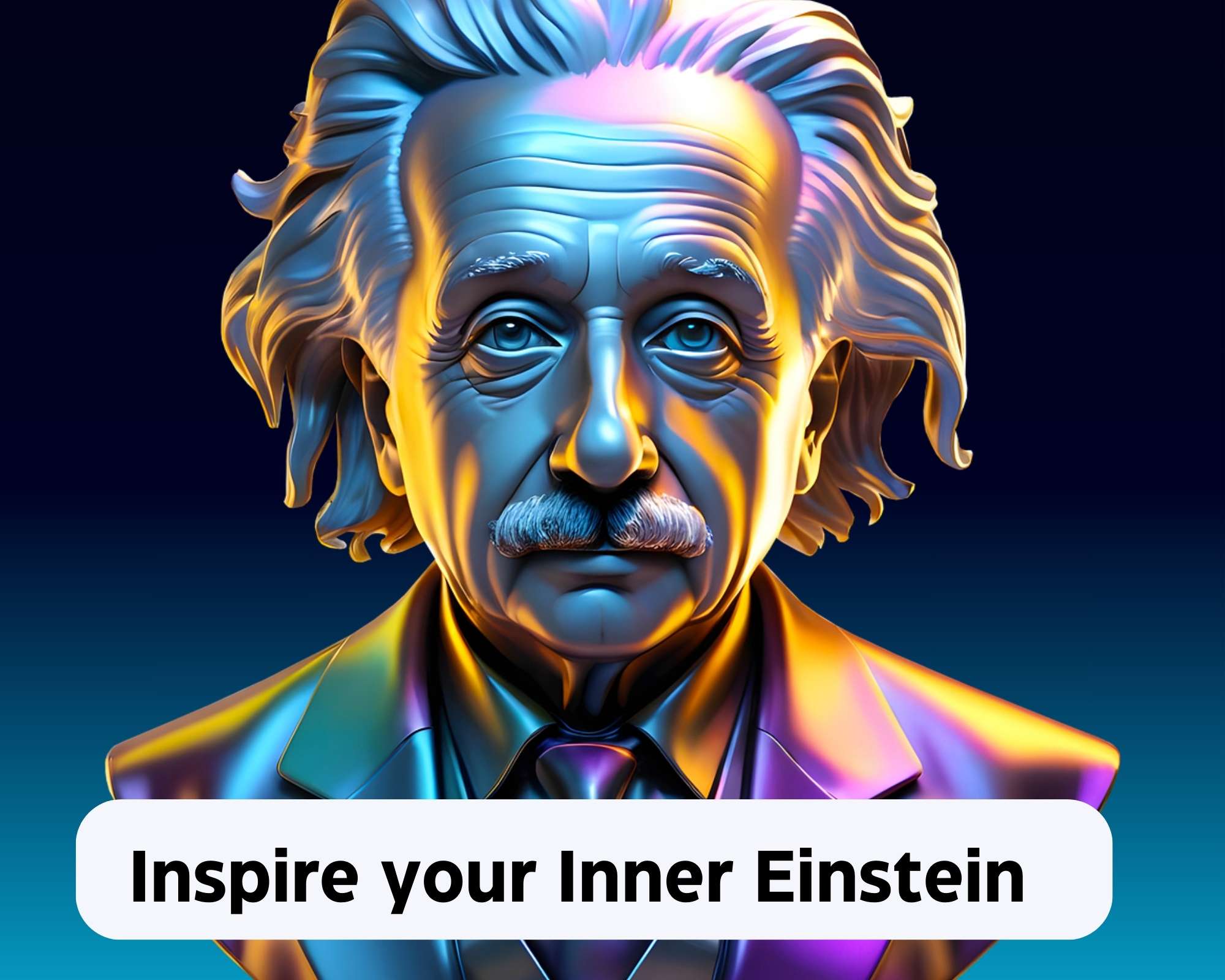 Howard Bloom
Howard Bloom
Howard Bloom has been called “next in a lineage of seminal thinkers that includes Newton, Darwin, Einstein, Freud, and Buckminster Fuller” by Britain’s Channel4 TV and “the next Stephen Hawking” by Gear Magazine.
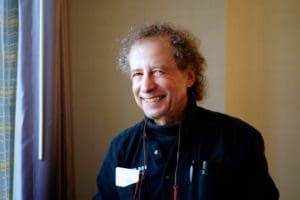 Bloom is the author of seven books, including The Lucifer Principle: A Scientific Expedition Into the Forces of History and the new Einstein, Michael Jackson & Me: A Search for Soul in the Power Pits of Rock and Roll. The Office of the Secretary of Defense threw a symposium on Bloom’s second book, Global Brain: The Evolution of Mass Mind from the Big Bang to the 21st Century, and brought in representatives from the State Department, the Energy Department, DARPA, IBM, and MIT.
Bloom is the author of seven books, including The Lucifer Principle: A Scientific Expedition Into the Forces of History and the new Einstein, Michael Jackson & Me: A Search for Soul in the Power Pits of Rock and Roll. The Office of the Secretary of Defense threw a symposium on Bloom’s second book, Global Brain: The Evolution of Mass Mind from the Big Bang to the 21st Century, and brought in representatives from the State Department, the Energy Department, DARPA, IBM, and MIT.
The eleventh president of India, Dr. A.P.J. Kalam called Bloom’s third book, The Genius of the Beast: A Radical Re-Vision of Capitalism, “a visionary creation.” And the Sheikh who runs Dubai named a racehorse—the Beast–after that same book.
Bloom has published or lectured scholarly conferences in twelve different fields, from quantum physics and cosmology to neuroscience, evolutionary biology, psychology, information science, governance, and aerospace. His work has appeared in the Washington Post, the Wall Street Journal, Wired, Knight Financial News Service, Cosmopolitan, The Village Voice, and the blog sites of Psychology Today and The Scientific American. In a full-page article in Business Insider, SpaceX’s Elon Musk praised one of Bloom space projects, the Two Billion Dollar Moon Prize. The Two Billion Dollar Moon Prize was also covered in Time, Newsweek, CBS, NBC, Fox News, and Politico. And Jeff Bezos tweeted a Bloom blog from the Scientific American calling for the establishment of a permanent transport infrastructure in space.
Thomas Linzey
Thomas Linzey serves as Senior Legal Counsel for the Center for Democratic and Environmental Rights. He is widely 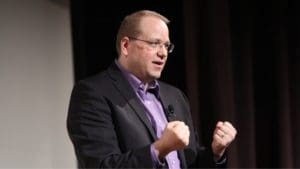 recognized as the founder of the contemporary community rights movement which has resulted in the adoption of hundreds of municipal laws across the United States. Further, he drafted the very first rights of nature law in the world (Tamaqua Borough, Pennsylvania, 2006), and consulted on the very first rights of nature constitutional provisions (Ecuador Constitution, 2008).
recognized as the founder of the contemporary community rights movement which has resulted in the adoption of hundreds of municipal laws across the United States. Further, he drafted the very first rights of nature law in the world (Tamaqua Borough, Pennsylvania, 2006), and consulted on the very first rights of nature constitutional provisions (Ecuador Constitution, 2008).
Linzey is a graduate of Widener Law School and a three-time recipient of the law school’s public interest law award. He has been a finalist for the Ford Foundation’s Leadership for a Changing World Award, and is a recipient of the Pennsylvania Farmers Union’s Golden Triangle Legislative Award. He is licensed to practice law in Pennsylvania, and is admitted to practice in the U.S. Supreme Court, the Third, Fourth, Eighth, and Tenth Circuit Courts of Appeals, and the U.S. District Court for the Western and Middle Districts of Pennsylvania. He co-founded the Community Environmental Legal Defense Fund. He also sits on the Board of Advisors of the New Earth Foundation.
Linzey is the author of Be The Change: How to Get What You Want in Your Community (Gibbs-Smith 2009), the author of On Community Civil Disobedience in the Name of Sustainability (PM Press 2016), and the co-author of We the People: Stories from the Community Rights Movement in the United States (PM Press 2016). He was a co-host of Democracy Matters, a syndicated public affairs radio show broadcast from KYRS in Spokane, Washington. He was featured in Leonardo DiCaprio and Tree Media’s film The 11th Hour and We the People 2.0 (Official Selection of the Seattle International Film Festival).
Linzey’s work has been featured widely, including in the New York Times, the Los Angeles Times, Mother Jones, and the Nation magazine. In 2007, he was named one of Forbes Magazine’s “Top Ten Revolutionaries,” and he was named one of the top 400 environmentalists of the last 200 years in the two-volume encyclopedia, American Environmental Leaders (3rd Ed. Grey House Publishing 2018). He is currently working on a new book, “Modern American Democracy (and other fairy tales)” (forthcoming).
James Arbib, RethinkX
James Arbib is a London-based investor in technology. He is the founder of Tellus Mater, an independent 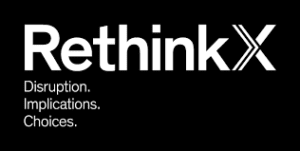 philanthropic foundation dedicated to exploring the impacts of disruptive technology, and its potential for solving some of the world’s most challenging problems. In addition, Jamie oversees a London-based family office with a diversified portfolio, across all asset classes and a focus on the risks and opportunities of technology disruption. A graduate in history from Trinity College, Cambridge, he has a Masters in Sustainability Leadership, also from Cambridge. He is a qualified chartered accountant and worked as an investment analyst covering utilities.
philanthropic foundation dedicated to exploring the impacts of disruptive technology, and its potential for solving some of the world’s most challenging problems. In addition, Jamie oversees a London-based family office with a diversified portfolio, across all asset classes and a focus on the risks and opportunities of technology disruption. A graduate in history from Trinity College, Cambridge, he has a Masters in Sustainability Leadership, also from Cambridge. He is a qualified chartered accountant and worked as an investment analyst covering utilities.
Matthew Green
Matthew is a husband, father, journalist and student of trauma healing. He began his journey as a reporter in 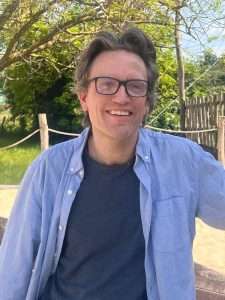 conflict zones, and is the author of two books: on warlord Joseph Kony, and on the trauma journeys of British soldiers returning from Iraq and Afghanistan. Two years ago, he left a global news organisation to join DeSmog, a nonprofit dedicated to exposing climate corruption.
conflict zones, and is the author of two books: on warlord Joseph Kony, and on the trauma journeys of British soldiers returning from Iraq and Afghanistan. Two years ago, he left a global news organisation to join DeSmog, a nonprofit dedicated to exposing climate corruption.
Building on years of exploring spiritual and healing modalities, he’s immersed in studying the psychological and mystical principles of integrating individual, ancestral and collective trauma with the international facilitator Thomas Hübl. Matthew writes the Resonant World newsletter serving the collective trauma healing movement, and recently launched Toxic Workplace Survival Guy to provide practical guidance to people in dysfunctional work environments.
Michael Masucci, EZTV Media/DNA Festival Santa Monica
Michael J. Masucci is an award-winning artist & producer, who has been curating digital art since 1984. According to 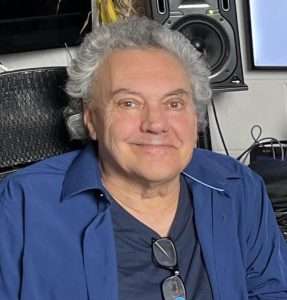 the Victoria & Albert Museum, an early digital art gallery he co-created “literally put digital art on the map.” As a founding member of EZTV (eztvmuseum.com) he has collaborated on projects which have been presented at the Museum of Modern Art (NY), the Institure of Comentproary Art (London) the Centre Pompidou, Lincoln Center, PBS, SIGGRAPH, as well as at numerous festivals, and professional conferences. He has authored articles and spoken at leading international conferences on topics ranging from information security, trans-humanism, and the role of art in the digital world.
the Victoria & Albert Museum, an early digital art gallery he co-created “literally put digital art on the map.” As a founding member of EZTV (eztvmuseum.com) he has collaborated on projects which have been presented at the Museum of Modern Art (NY), the Institure of Comentproary Art (London) the Centre Pompidou, Lincoln Center, PBS, SIGGRAPH, as well as at numerous festivals, and professional conferences. He has authored articles and spoken at leading international conferences on topics ranging from information security, trans-humanism, and the role of art in the digital world.
His work is included in the permanent collection of USC, and in 2025 his work will be included at an exhibition at the Getty, as well as having a retrospective at the Walt Disney Concert hall’s REDCAT Theater, of his early video art work as half of the experimental music/video art duo Vertical Blanking.
He has been included in the Getty’s region-wide initiative PST in 2011 and 2024, and has co-founded DNA Festival Santa Monica (dnafestivalsm.com).
He is a Commisioner for the Santa Monica Arts Commssion, and has served as Chair. He is an artist-in-residence since 2000 at 18th Street Arts Center
Sarah Savory
My goal is to share these critical new insights to inspire and empower people and show how we can all work together towards a better world.
The discoveries Allan made were born of a deep passion and love of the wildlife and the people of Africa. But this is for all wildlife and all people. Everywhere.
I teach these discoveries and wrote the workbook because I want to share knowledge and understanding of these incredibly exciting new management and ecological insights – these show how each of us can make decisions in a way that will have a consistently positive impact on the world around us.
The first thing we have to understand is when and why our decisions began negatively impacting the health of our planet and how we can make a simple adjustment to ensure our decisions always reflect the incredible connections that make up our amazing world.
We must also understand how important it is to connect the quality of our lives to the health of our life-supporting environment – and unite beyond our personal differences towards a common environmental purpose.
Because we are not something separate to nature – we are nature.
Over time, our decisions have resulted in us becoming more and more disconnected from the natural world, which means we are losing the connection to ourselves. In this work we explore when and why our decisions started to result in problems and discover how to reconnect to nature before it’s too late.
This work helps us to ‘unlearn’ an inherited (but outdated) decision-making process and adapt to a new one… one that brings us back into balance with each other, and with the natural world, by reflecting that our individual and collective social and economic well-being is inseparable from the health of our environment.


Be the first to comment